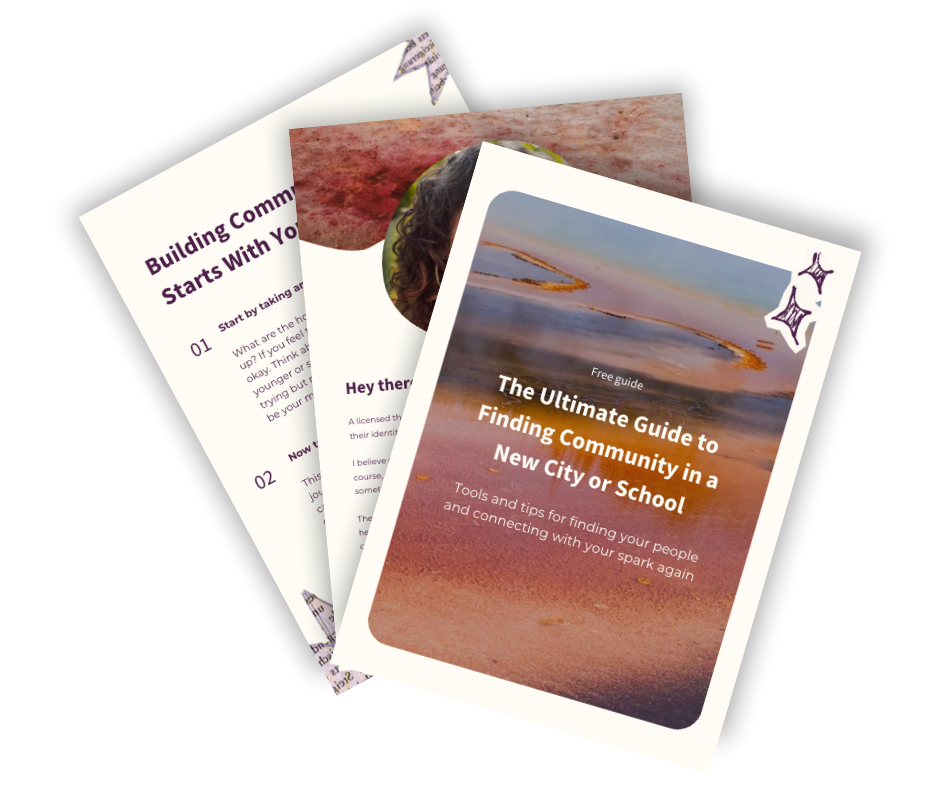Therapy for teenage trauma in Pasadena and Northeast LA
When you think of trauma, you might picture extreme events, but teenage trauma can take many forms. Sometimes it is loud and obvious, and sometimes it is quiet and invisible. Whether it came from family conflict, bullying, academic pressure, or experiences you still cannot name, trauma shapes the way you see yourself and the world around you.
I’m Cristina Lugo, a therapist in Pasadena and Northeast LA. I specialize in helping teens and young adults process trauma in a way that feels safe, creative, and empowering. Healing is not about erasing your past. It is about reclaiming your future.
What is teenage trauma?
Teenage trauma refers to distressing experiences during adolescence that overwhelm your ability to cope. This can include emotional neglect, abuse, accidents, bullying, discrimination, or sudden life changes like divorce or loss. Trauma is not only about what happened, but also about how it lives in your mind and body afterward.
Therapy provides space to untangle these experiences, reduce symptoms, and build resilience so you can move forward with more clarity and confidence.
Most common symptoms of teenage trauma
- Intense anxiety or constant feelings of danger
- Mood swings, irritability, or emotional numbness
- Difficulty concentrating at school or work
- Isolation from friends or loss of interest in activities
- Nightmares, flashbacks, or intrusive thoughts
- Self-doubt and feelings of shame or guilt
- Heightened sensitivity to conflict or rejection
How do I know if my teen has teenage trauma?
Teenage trauma is not always easy to recognize. It can appear in behaviors or moods that seem unrelated. Trauma can live in the body and mind in ways that are subtle but powerful. Here are some signs to pay attention to:
- Sudden changes in mood, irritability, or emotional numbness
- Avoiding places, people, or situations that trigger memories
- Nightmares, flashbacks, or difficulty sleeping
- Struggles at school, loss of concentration, or falling grades
- Pulling away from friends or isolating from others
- Feelings of shame, guilt, or worthlessness
- Heightened sensitivity to conflict or rejection
If these signs sound familiar, teenage trauma therapy can provide the safe and supportive space needed to process what happened, release the weight of the past, and begin to feel safe again.
How I treat teenage trauma in Pasadena & Northeast LA
My approach to trauma is trauma-informed, creative, and holistic. Depending on the needs, we may use:
- EMDR therapy to reprocess traumatic memories and release their grip
- Mindfulness and body-based techniques to calm your nervous system
- Creative expression like journaling or art to explore feelings safely
- Talk therapy that validates your experience and helps you create new meaning
What topics can we talk about in therapy for teenage trauma?
- Processing painful experiences in a safe and supportive environment
- Learning coping strategies to manage flashbacks and anxiety
- Rebuilding self-worth and identity after trauma
- Understanding how trauma impacts relationships and trust
- Developing resilience and a sense of safety in daily life
Ready to get started?
01
Our first session together is called the intake session
It’s a little longer than our regular 50 minute sessions so we have more time to get to know each other and talk about what brings you to therapy. I will ask you questions about your life, school, work, friends, history and more. There’s no pressure to share any of the really hard stuff on the first day, I just want to get an initial picture of who you are and what you are needing support with. If you’re a minor, I usually have one parent join us for the first 10 or 15 minutes of the intake so we can all talk together about how I will work to help you and introduce myself to your parent too. Then I will meet one on one with you for the rest of the time and for future sessions as well.
02
Together we’ll create a personalized treatment plan with your therapy goals.
The plan will include goals and tools such as EMDR, art, talk therapy or mindfulness. These goals are completely up to you and can be changed at any time. We will both keep your goals in mind as we meet together so we can stay on track.
03
Week by week, we’ll work through what’s been holding you back
So you can feel calmer, more confident, and more like you. Whether it’s navigating friendships, family, anxiety, or big emotions, you’ll build real skills to handle it all.
Teenage trauma specialist in Pasadena & Northeast LA
I’m Cristina Lugo, a Puerto Rican-American therapist with more than 14 years of experience supporting teens and young adults through trauma, anxiety, and life transitions. I understand how deeply trauma can shape your identity and relationships. My goal is to create a space where you feel seen, safe, and capable of healing.
Tips & resources for coping with teenage trauma
- Practice grounding techniques like naming five things you see and hear around you
- Journal to explore emotions that feel overwhelming to say out loud
- Build a routine that gives you stability and predictability
- Stay connected with supportive friends, mentors, or communities
- Remember that healing is a process, not something you have to rush

Hi there, I'm Cristina Lugo, LCSW
Trauma-informed therapist for teens & young adults
I help sensitive, curious, and creative young people navigate anxiety, identity, and life transitions with compassion and evidence-based care. My work is grounded in cultural awareness, empowerment, and deep belief in the human capacity to heal.
Download my free guide

Book your first session
❋ Rates: $215 per 50 minute in person or virtual session
❋ $250 per 60 minute intake session
❋ $140 for 30 minute parent consultation (virtual, phone or in person)
❋ Superbills are available for PPO reimbursement
FAQ
How does teenage trauma affect adulthood?
Unprocessed trauma in adolescence can shape adult identity, relationships, and mental health. It may lead to anxiety, depression, or struggles with trust. Therapy helps break these patterns early.
What are examples of teenage trauma?
Trauma can come from bullying, emotional neglect, abuse, witnessing violence, discrimination, or sudden losses. Even events that seem small to others can feel traumatic and valid.
How does trauma affect the teenage brain?
Trauma activates the brain’s stress response system, making it harder to regulate emotions, focus, and feel safe. With therapy, the brain can rewire and recover.
Can a teenager have PTSD?
Yes. Teens can develop post-traumatic stress disorder after experiencing or witnessing trauma. Symptoms include flashbacks, nightmares, hypervigilance, and emotional withdrawal.
Can teenage trauma cause BPD?
Research suggests that repeated trauma in adolescence may increase the risk of developing borderline personality disorder. Therapy can help reduce this risk by building coping skills and emotional regulation.
Do you take insurance?
I am considered an out-of-network provider and do not bill your insurance. However, if you have a PPO plan, you may be able to get partial reimbursement of your therapy costs which is a great way to make therapy more affordable to you. I can provide you with superbills each month which you can then submit online to your insurance company and they would issue you a reimbursement check directly. Check with your plan to determine the percentage reimbursement you qualify for.
What is your cancellation policy?
I require 24 hours notice in order to cancel an appointment without charge. If something comes up for you, I can offer you reschedule options within the same week. If we are unable to reschedule then I will still need to charge the cancellation fee which is the full fee for our time.
What is a Good Faith Estimate?
You have the right to receive a “Good Faith Estimate” explaining how much your medical and mental health care will cost.
Under the law, health care providers need to give patients who don’t have insurance or who are not using insurance an estimate of the expected charges for medical services, including psychotherapy services.
You have the right to receive a Good Faith Estimate for the total expected cost of any non-emergency healthcare services, including psychotherapy services.
You can ask your health care provider, and any other provider you choose, for a Good Faith Estimate before you schedule a service.
If you receive a bill that is at least $400 more than your Good Faith Estimate, you can dispute the bill. Make sure to save a copy or picture of your Good Faith Estimate.
For questions or more information about your right to a Good Faith Estimate,
visit www.cms.gov/nosurprises or call (800) 985-3059.
This website is owned and operated by Cristina Lugo, LCSW. These Terms set forth the terms and conditions under which you may use our website and services as offered by me. This website offers visitors information about working together, and psychotherapy based content. By accessing or using the website of our service, you approve that you have read, understood, and agree to be bound by these Terms.
